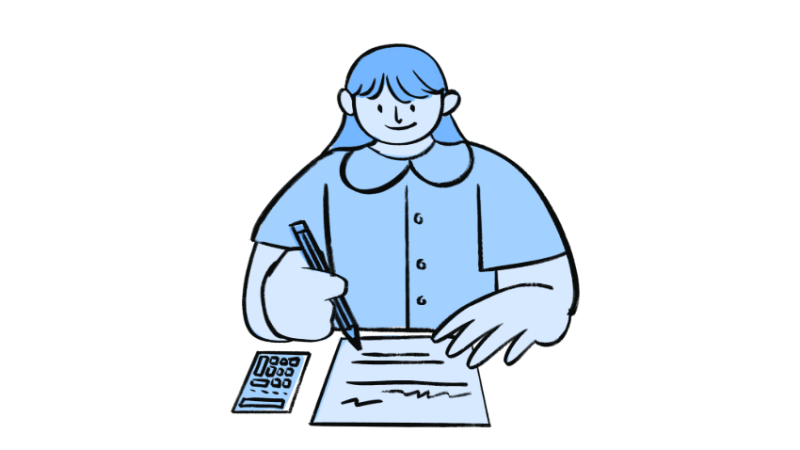Times tables games – Fun online and offline ideas for schools
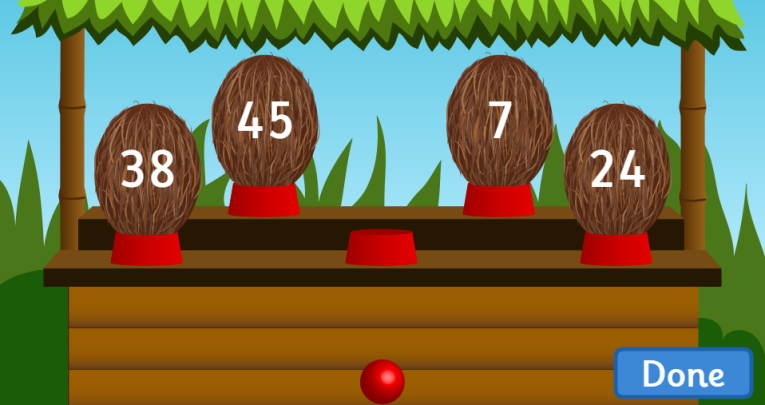
Have five times the fun with this selection of online and offline times tables games…

- by Teachwire
- Classroom expertise and free resources for teachers
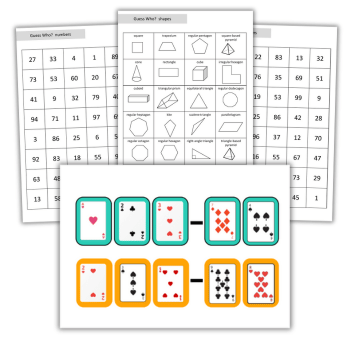
When it comes to teaching times tables, rote learning may be important. However, it’s not much fun for kids if this is the only way they’re taught these fundamental elements of mathematics. So, as a complementary aside, why not let them loose with some of these fun, free times tables games? They’re all quick and easy to play.
Printable times table games for KS1 and KS2
Guess who?
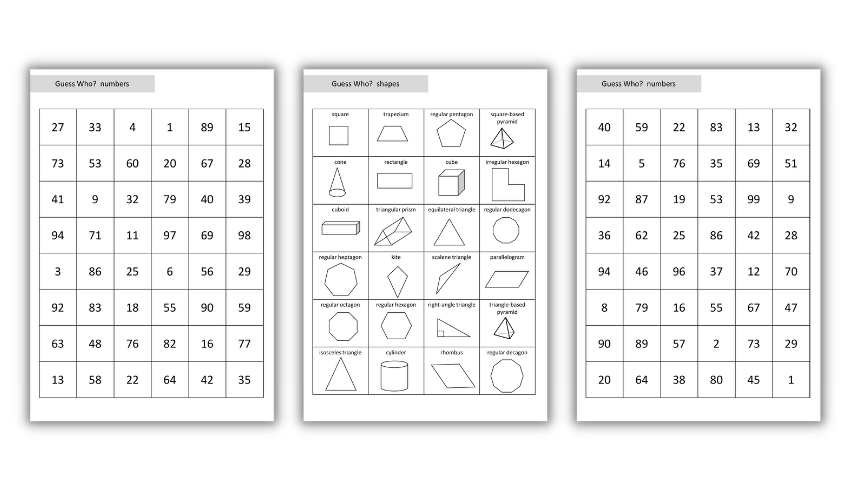
To play this game, download and print out our Guess Who number sheets. Give identical sheets to each pair of students – these are the game boards. Cut up a third identical sheet into a deck of cards.
Just like the original game, each child chooses a card (and keeps it hidden). Then their partner has to guess what’s on the card using only ‘yes’ or ‘no’ questions. Place counters on numbers that have been disqualified.
Challenge older children to ask questions using the vocabulary of multiples, factors, prime and composite numbers. For example, is the number a:
- Multiple of 7?
- Composite number?
- Square number?
Maths bingo
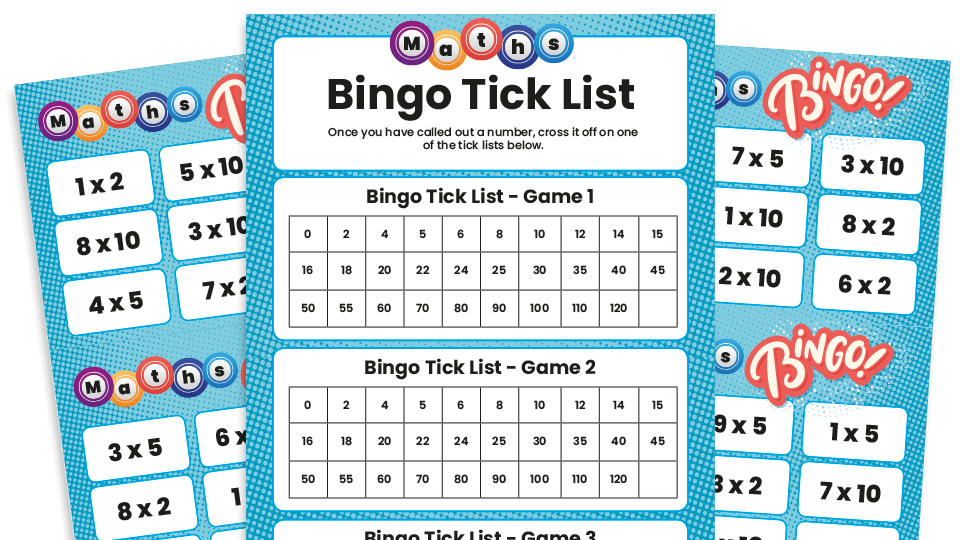
This bingo maths game resource pack is a fun way to support children in the recall of their 2, 5 and 10 times tables.
Call out numbers from a tick list. Ask pupils to check their cards to see if they have a corresponding times table calculation, which they then cross out. The first pupil to cross out three calculations in a row, horizontally, vertically or diagonally, is the winner!
Times tables dice
To play this game, split children into pairs. Give them a pair of D12 (twelve-sided dice) and ask them to multiply the numbers that are generated.
For more support use a times table grid to help children to find the answers to the multiplication questions. Or alternatively, give children dice with fewer numbers to keep the numbers smaller (eg two D6s).
For an added layer of challenge, provide children with a blank times table grid to fill in as they go, with no repeats allowed!
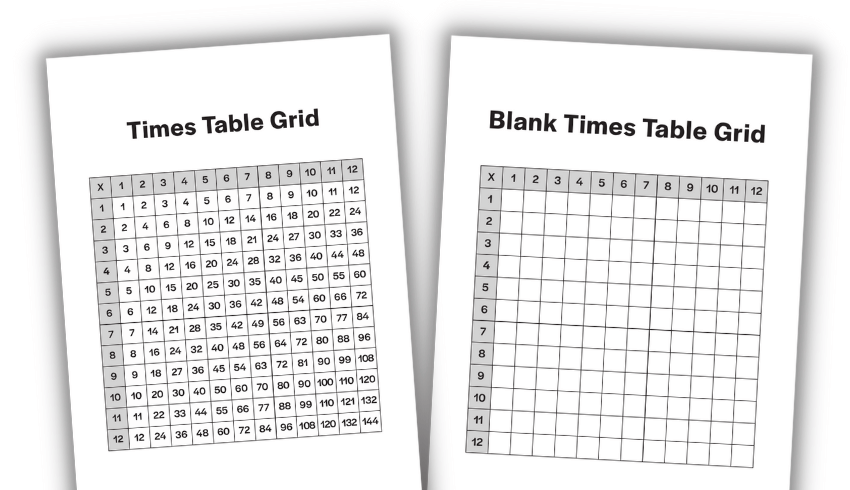
Splatz times tables game
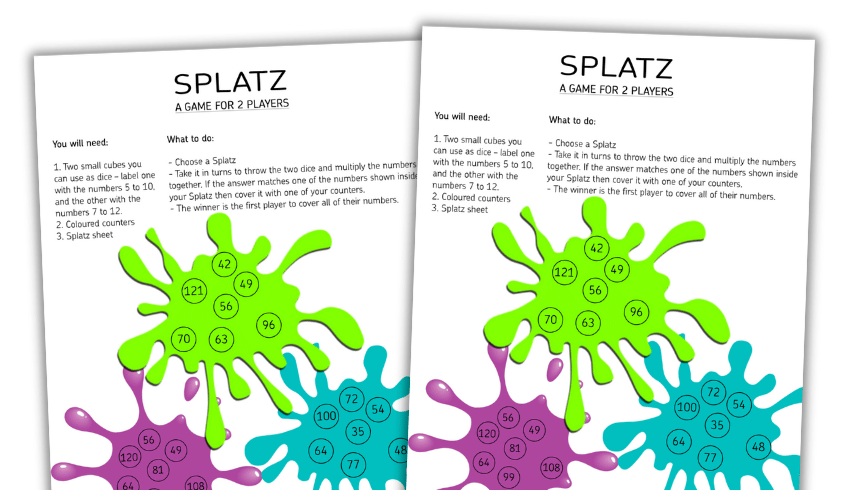
In the game Splatz, two players take it in turns to roll two cubes customised with the numbers 5 to 10 and 7 to 12. They have to multiply both numbers together.
If the total matches one of the numbers inside their pre-chosen ‘Splatz’ diagram, they place a counter on the relevant number. The first player to cover all the numbers inside their Splatz is the winner.
Multiplication and decimals game
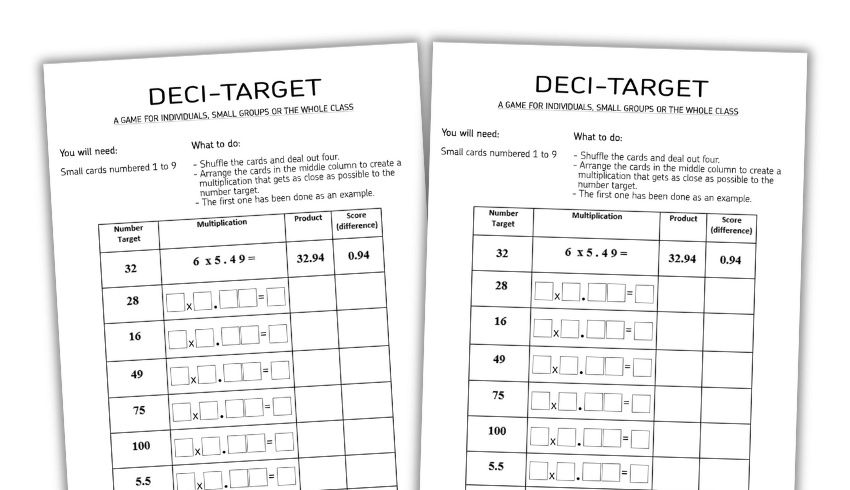
In this times tables game, you deal pupils four number cards. They then have to assemble eight multiplication sums that include a single decimal number.
The product of each sum has to be as close as possible to a corresponding target number in an adjacent column.
Multiplication game
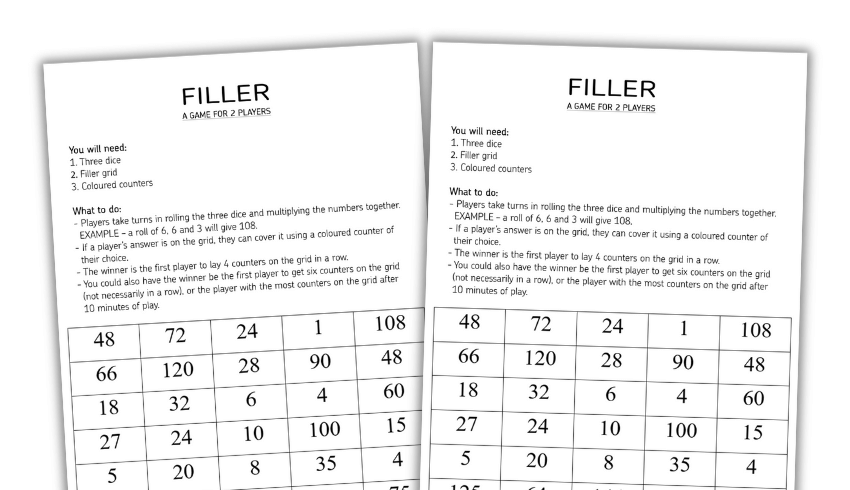
In this game you take it in turns to roll three six-sided dice and multiply the results together, placing counters on the corresponding numbers in the grid. The first player to form a ‘Connect 4’-style horizontal, vertical or diagonal row of counters is the winner.
Times tables online games
Hit the Button times tables game
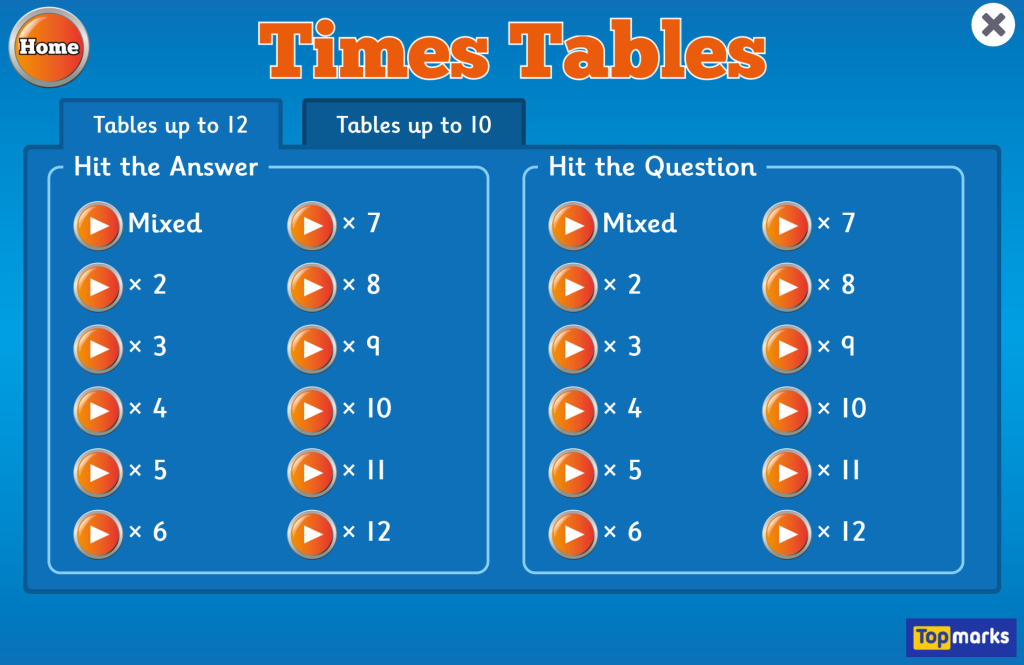
Hit the Button features quick-fire questions on a number of subjects, including times tables. Pupils must work against the clock to develop their mental maths skills.
Shikaku puzzles
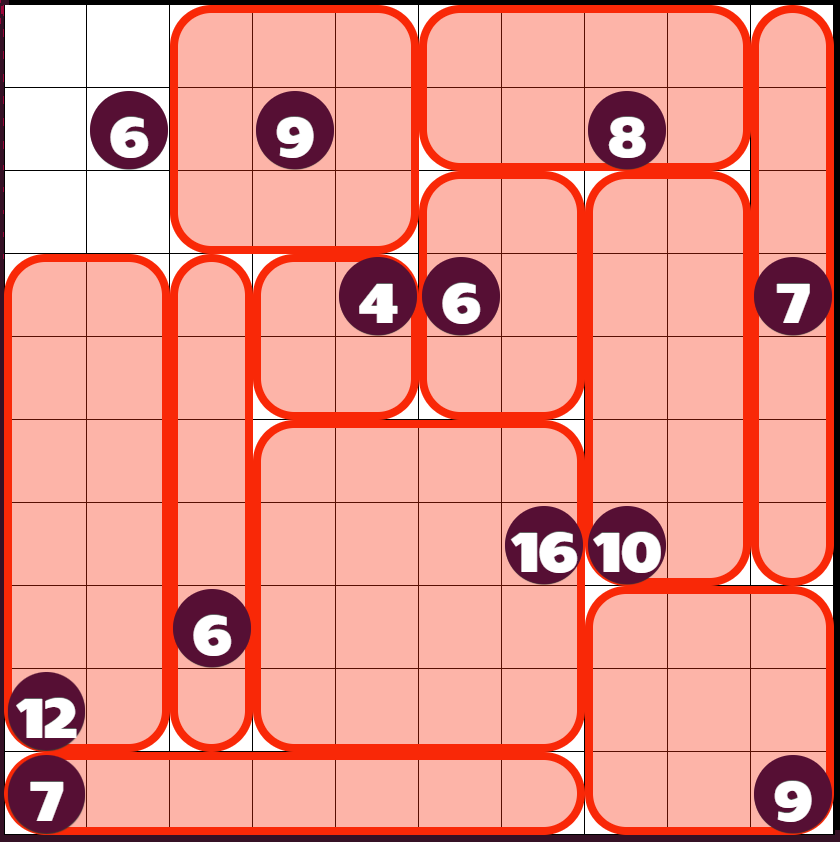
Shikaku is a maths puzzle which brings together factor/factor/product relationships, the commutative nature of multiplication and relating area to arrays and multiplication.
You play it on a rectangular grid. Some of the squares contain a number and pupils must solve the puzzle by dividing the grid into rectangles containing only one number. The number must represent the area of the rectangle.
While the 25 questions in the multiplication tables check assess only multiplication facts, solving a shikaku puzzle supports all pupils to develop a secure understanding of multiplication and division facts that are essential for future success in maths.
Number Fact Families
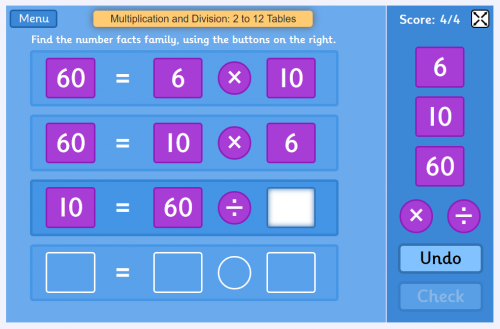
This game lets children choose the correct order of digits and symbols to make all the relationships in each number family.
So, for example, given ’11’, ‘4’, ’44’, ‘x’ and ‘÷’ children would need to find the four relationships:
11 x 4 = 44
4 x 11 = 44
44 ÷ 11 = 4
44 ÷ 4 = 11
You can choose from questions relating to the 2-5 times tables, 6-12 times tables or 2-12 times tables.
What’s Wrong?
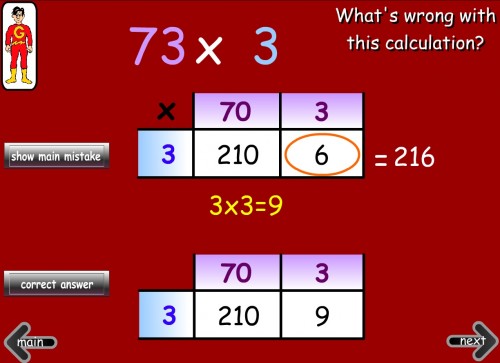
Well, my shoulder has been playing up, Janice in accounting took my lunch and… oh, you mean with this maths equation? Sure.
Instead of getting children to do different variations of the same sums, this KS2 game shows an incorrect answer and gets them to point out where the mistake lies.
Coconut multiples
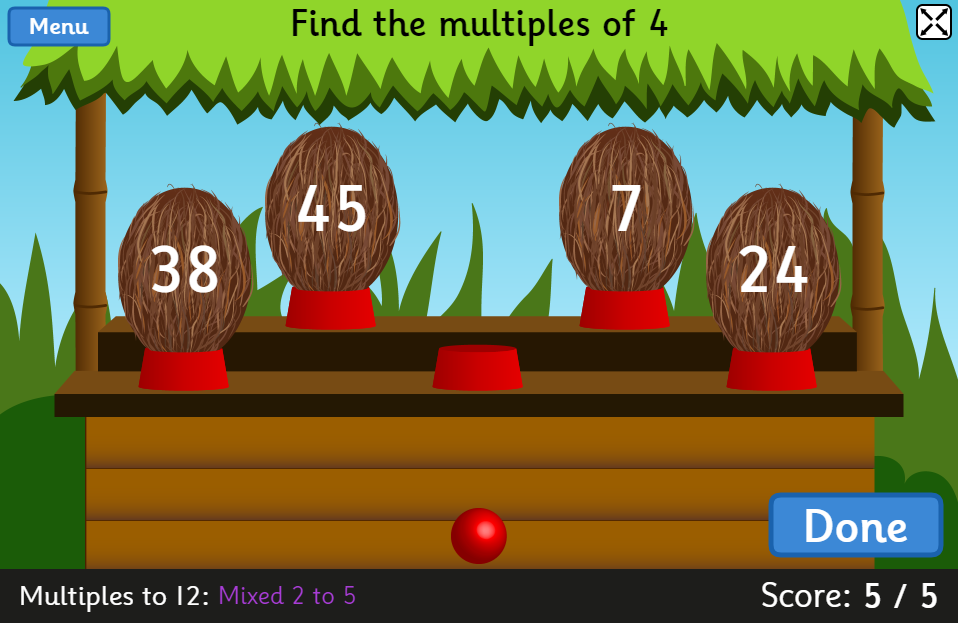
This coconut shy game can be differentiated a number of different ways. You can focus on any times table from 2 to 12, or you can play with a mixed bag of multiplication questions from 2-5, 6-12 or anything from 2-12.
You’re given five coconuts, each containing a different number, and you’ll be asked which ones are a multiple of a particular number. Your job is to throw a ball at the correct answers, and click done once you’re sure you’ve left only incorrect answers standing.
More resources
- Download our times tables worksheets bumper pack
- Browse lots more KS1 and KS2 maths games ideas
- Browse more times tables activities


